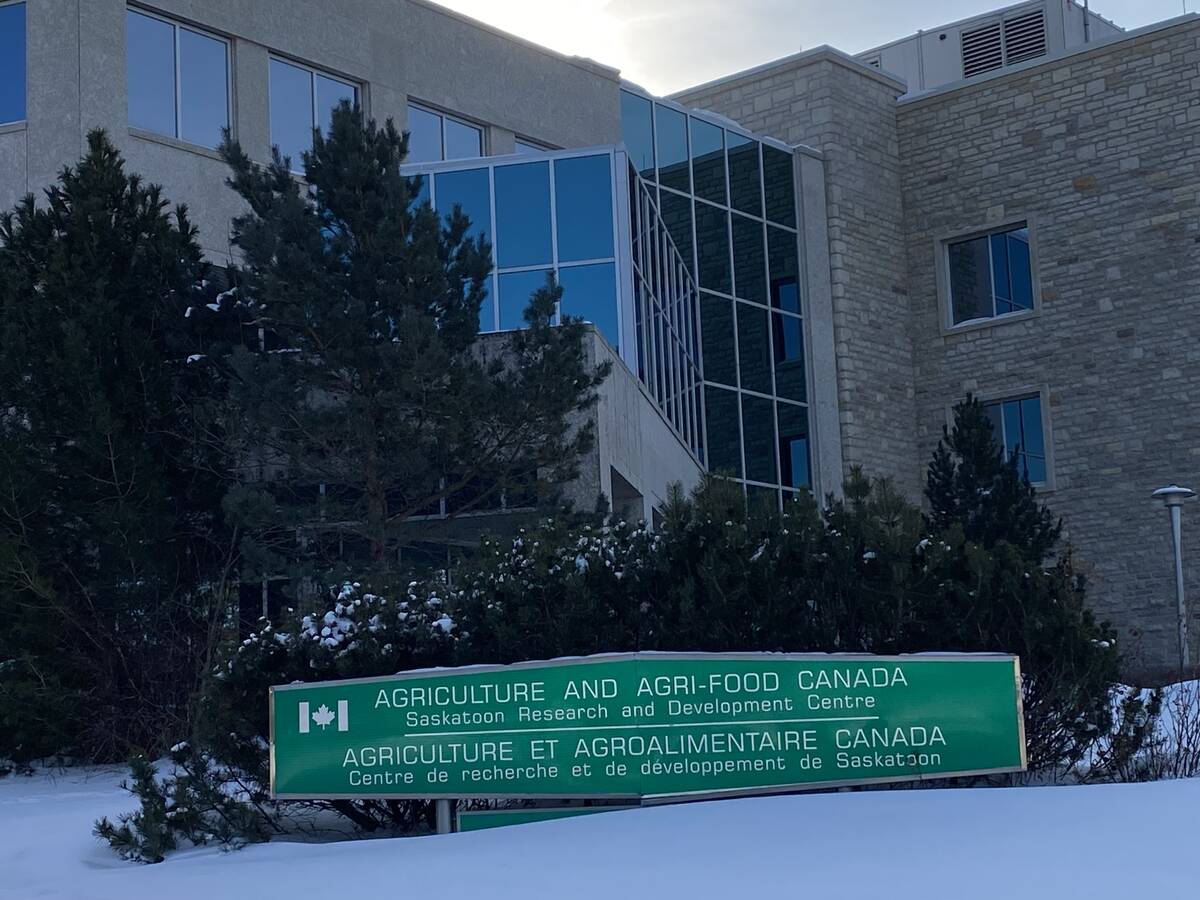The old saying “too much of a good thing” doesn’t seem to apply to Alberta’s beef packing companies.
The Feb. 11 announcement that XL Foods (a Nilsson Bros. company) will receive $1.6 million in Growing Forward/ ALMA (Alberta Livestock and Meat Agency) funding over the next two years to increase the value-added production capacity of their Lakeside, Brooks plant follows hot on the heels of the December $3 million gift to Cargill Meat Solutions to “improve operational efficiencies” at their High River plant.
Read Also

Don’t undermine the backbone of agriculture
Agriculture Canada and the dedicated public servants who work every day to support Canadian agriculture are a crucial pillar of the sector and they need support — not austerity.
In a province that prides itself on free market ideals, these actions are proof that, in Alberta, the facts are negotiable as long as the ideology stands.
As both these Alberta plants were initially built with the benefit of subsidies, a sense of entitlement seems to have been afforded them – which doesn’t appear to apply to new entrants in the beef processing sector.
During the BSE crisis, the owners of these two plants received tens of millions of dollars direct compensation from the government ….
The icing on the cake was utilizing the captive supply situation created by the U.S. border closure to procure Canadian cattle cheaply and sell boxed beef into the hottest market the U.S. had ever seen.
This is particularly galling to cattle producers, especially cow-calf operators who bore the brunt of the losses after BSE.
Many of these ranchers approached the Alberta government with proposals to build producer-owned or controlled packing plants with the intention of creating more competition for live cattle, accessing new markets and enhancing producers returns. Almost without exception these requests for financial backing, even simple bridge financing, were turned down.
Seven years later our beef sector has been gutted of equity, greatly reduced in size and the government policy of subsidizing the established mega-packers has clearly failed.
Indeed, their financial support of the established packers – while denying support to smaller scale producer initiatives – has accelerated the pace of consolidation and significantly reduced competition in the sector…
How ironic that in the recent throne speech the government recognized the need to diversify into Asian markets and rely less on the U.S. – something ranchers told them in 2004; yet the subsidies continue to be directed at maintaining the status quo.
It seems you don’t even need to buy lottery tickets when you are one of the exclusive group of government backed packers in Alberta – the multi-million dollar cheques just roll in regardless.
Iain Aitken,Rimbey, Alta.
LONDON, U.K. (Reuters) – African farmland investment has the potential to match the exponential growth of Brazil’s agricultural industry, says the head of business development at Quifel, a privately owned agricultural operator.
“The best benchmark is really Brazil,” said Pedro Marques dos Santos, explaining how Africa could emulate Brazil’s dominance in global agricultural investments.
“What took the Brazilians around 30 years, one should try to do it in 10 to 15 years.”
Quifel operates in Africa, Latin America and southern Europe.
It began operations with a palm project in Brazil.
“In 2007, Quifel also embraced the sub-Saharan Africa land development opportunity,” Marques dos Santos said, noting higher land prices in Brazil as one driver.
Investors poured $26 billion in foreign direct investment into Brazil in 2010 and around one-third of all funds and companies investing in farmland globally have committed funds to Brazil, the OECD said in a report.
But anyone interested in buying up Brazilian land may find it tough.
Last year, Brazil’s attorney general issued a ruling that limited the area of land foreigners are able to buy.
Foreign investors or companies that are more than 50 percent foreign- owned are now prohibited from buying more than 12,350 acres.
The cap has prompted some investors to look to alternative regions, including Africa.
This, combined with rising food prices, has spurred global interest in African farmland.
Global food prices are at record levels and are likely to remain so in the months to come, according to the United Nation’s Food and Agriculture Organization.
Africa has lower production costs than Latin America due to cheaper land and labour, yet the land could offer similar yields, Marques dos Santos said.
He said there’s a bigger need to invest in infrastructure and logistics in Africa but, “the end result is to expect high returns if farm talent is able to overcome everyday operational difficulties.”
Brazil, Latin America’s largest country, is one of the world’s leading exporters of agricultural commodities including coffee, sugar and soybeans.
Quifel already runs African farms in Mozambique, Sierra Leone and Angola. It chose those countries based on their coastal locations and expectations of high economic growth, Marques dos Santos said.
Coastal West African countries were attractive for fruits and vegetables, while Mozambique was appealing for its ability to produce oilseeds.
Shipping costs for bulk commodities would be lower because of the farms’ proximity to coastal ports and Asian markets.
Many African countries are net food importers, raising questions about food security and whether production should go to feeding the local community.
“Quifel’s projects are greenfield and for the foreseeable future our production will be bought by local players , mainly processors or crushers, as the countries need that production for domestic consumption,” Marques dos Santos said.
In addition to food security issues, investing in Africa has other challenges.
“Companies which can’t cope with the long-term horizon are slowly leaving the region,” he said.
Quifel has a long-term expansion plan within sub-saharan Africa, he said, adding that its immediate focus will be on the development of the areas it already has under management.














